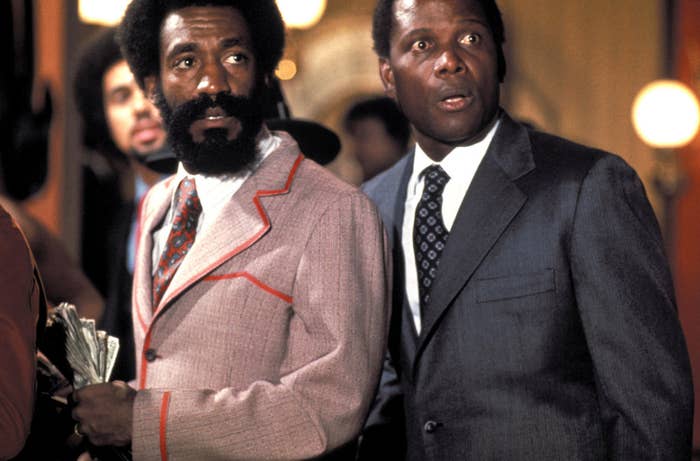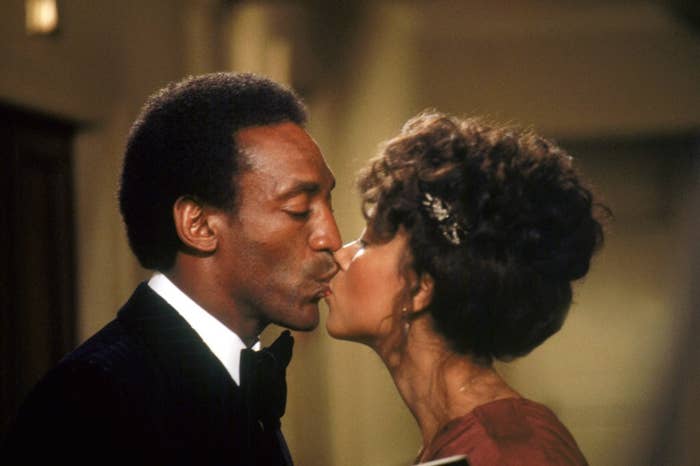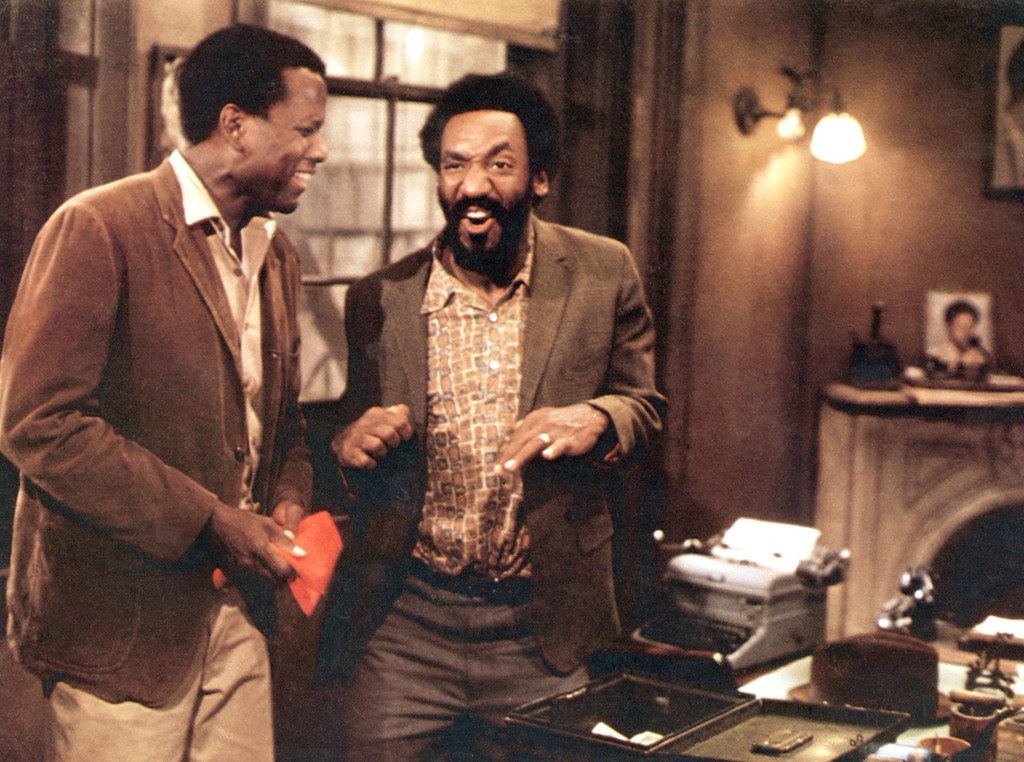
Whether he wants it to be or not, 2014 is Bill Cosby's year of reckoning. Cosby's own camp made a colossal social media misstep just yesterday by inviting Twitter users to make memes of old photos of the comic, using the hashtag #CosbyMeme. It's unclear whether his handlers grossly underestimated how ugly Cosby backlash has gotten this year, or they're perversely seeking to capitalize on it. What's certain is that if Cosby hopes to salvage his reputation, he'll have to address the allegations himself, head-on. And soon.
Maybe it's too late for most people. It's improbable that the public will be able to reconcile Cosby's former image as America's favorite dad, his more recent reincarnation as a crotchety, "pull up your pants!" racial-pathology peddler, and these detailed accusations that he roofied and raped numerous women.
It would be hard for me too, even if he were to do the right thing and address the accusations and evidence. But I feel less betrayed by a Dr. Huxtable-esque Cosby than others, I think. Because the Cosby I cottoned to most as a kid wasn't Huxtable, or even Fat Albert. It was the brief, bizarre 1970s version of himself that cast the longest shadow with me.
Bill Cosby spent half of the '70s hidden behind the scruff of a thick, unruly beard. We know it best from 1974's Uptown Saturday Night and 1975's Let's Do It Again. Watching him con, double-cross, and run, it's hard to believe he's the same man from a decade earlier, best known for playing roles that were poised, powerful, and impervious to problematic racial politics. And it's even harder to imagine him as the same man who'd show up on NBC Thursday nights a decade later, plying eight years of respectability politics and inoffensive middle-class humor on The Cosby Show.
In 1977's A Piece of the Action, Cosby plays a charismatic white collar criminal. Even when he's later called out and blackmailed for his crimes, his face remains impassive, his demeanor unapologetic. In light of Cosby's recently resurfaced sex scandals, his role in A Piece of the Action is worth revisiting, as his character, David Anderson, actually makes a rape joke. In a discotheque, he runs into a woman he's hooked up with before. She's coming onto him while his date, a co-worker whose affections he "won" by refusing to leave her alone, is in the restroom.
"David Anderson, you haven't danced with me all night," she says. "If you don't dance with me, I'm gon' holler rape."
"Is that a request?" he laughs.
"The rape or the dance?"
"Don't make no nevermind to me," he smirks.
"Well, don't make no nevermind to me, neither!" she fires back.

As a kid viewer, not entirely sure what rape was but positive it was something bad, I remembered that scene as the first time I'd ever heard the word rape used to elicit laughter. It confirmed to me that he was a creep, and it colored how he came off any other time I read about or watched him.
It was unsurprising, for instance, that he made seemingly insensitive comments about his drug-addicted daughter in the '80s. It was no big shock that Autumn Jackson, a young woman whose mother had been paid off following an affair with Cosby in the 1970s, tried to extort him for more money in the 1990s. Even though he wasn't her father, he'd been paying her off to keep her quiet about the mere possibility. I noted how he threw money at accusations he didn't like.
You'd have to subscribe to a particular Cult of Cosby not to have been side-eyeing him before now — and it would've been the one that he alone was most committed to creating. As Robert Huber wrote in his 2006 Philadelphia Magazine profile, "Dr. Huxtable & Mr. Hyde," Cosby is a notorious controller of his own press, a decades-long deflection of attention away from his own flaws:
Cosby keeps close tabs on anything written about him. His head PR guy in L.A., quite interested in how this article was going, called me on a Saturday afternoon. It wasn't just to chitchat. Cosby … wanted me to know ... that the Inquirer and Daily News have had it in for Cosby, their coverage is completely biased, and that I must read everything they've ever written about him in order to grasp that.
Mr. Cosby wants to send me faxes: glowing letters of appreciation for this or that, or glowing reviews of his call-outs around the country. [...] The barrage of positive information, coupled with virtual silence from the man himself, is — not to put too fine a point on it — transparently controlling and paranoid.
Certainly none of Cosby's other negative press, from his 1997 paternity scandal to his infamous 2004 "pound cake speech," which blamed the black community for its own ills, were as heinous and disturbing as the sexual assault allegations that began gaining public steam in 2005. But he's never been an exemplar of moral fortitude. All along, he's just been a wealthy man, used to hiding behind the scruff of his vices.

Being able to see Bill Cosby as something other than America's Favorite Dad hasn't meant that I've never gotten lost at 10 Stigwood Avenue, where the Huxtable family's happy memories could easily stand in for my own less colorful ones. I'm the same age as Keisha Knight Pulliam and remember being both 5 and 15 at roughly the same time Rudy was. To this day, I still look up to Lisa Bonet the way little-girl me looked up to Denise Huxtable. (These days, that's as much about Bonet's continued refusal to kowtow to Cosby nostalgia as it is about anything else.) There is a sizable part of my childhood experience that would not have existed without access to The Cosby Show, both in primetime and in syndication. It's hard to imagine my personal style or even my humor without the imprints that sitcom left on them.
Perhaps it's because of that appreciation coupled with the fact that I never bought Bill Cosby as a worthy role model — either for black fatherhood, romantic partnership, or "acceptable" blackness — that I'm not as invested in joining the recent vilification parties, like Hannibal Buress' viral stand-up bit last month, when he called Cosby a rapist, or social media misfires like the #CosbyMeme.
I'm as disgusted as everyone else that Bill Cosby settled sexual assault cases in the hopes of silencing his accusers. I hate that he remains so aloof about it all, as though his erstwhile reputation as a noble, upstanding father figure will act as another prop to hide behind. But I'm most sad that it's now, at the age of 77 and in the twilight of his life, that his dirty laundry has been rehung and left to twist in the wind. There's something fairly pitiable about a gray-haired, rheumy-eyed, and meandering Cosby being cast as a rapist in what should be the golden age of his career.
It's complex and uncomfortable for the rest of us to contend with just how much of Cosby's legacy-building has been pure myth and artifice, but it would've been easier to accept, had he'd held himself accountable earlier. Perhaps by now, we would've been able to forgive him. Instead, the resurfacing of the allegations against him have just left us feeling newly betrayed by the fictional granddad we'd trusted to guard a bit of our childlike wonder. We were supposed to be able to revisit the worlds Bill Cosby created and feel, however fleetingly, an uncomplicated nostalgia. That's what drives so much of our current animosity; we cannot abide a relentless moralizer who's never once been able to keep it real with us — except, perhaps, for that time when he played a charming criminal who lured one woman and joked about rape with another.
